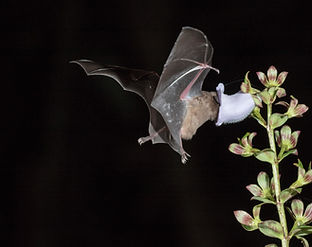




Why Pollinators are Important
The role of Pollinators in our planets ecosystems is often overlooked and forgotten about when the conversation turns to conservation. Its easy to see why its important to defend wildlife like bears, and whales, and tigers. But no group of critters on earth has a larger daily impact on humans and their food supply, as the pollinators of the world. Approximately 35% of the food humans eat, and 90% of all flowering species around the planet is the result of pollination. Each species has a different method for how they pollinate, but all of them are equally as important. Everyone is familiar with the soothing buzzing of bumble bees, honey bees, and Mason bees as they fly from plant to plant, and flower to flower, doing the work they were intended to do.
But in North America there is a huge variety of pollinators beyond bee's that humans see everyday without realizing the important role these critters are playing in the ecosystem.. Butterflies, moths, many varieties of birds, beetles( among many,many insects) and even bats are vital to our food production. In fact, in many desert landscapes, and tropical area's, bats are the primary pollinators! In addition to food, pollination is responsible for cotton's and linen's, biofuels, wax's, construction materials and a host of other products people use outside of the food cycle, but within the economy as a whole.
Sadly, for the past half century very strong trends are showing drastic impacts on the populations of pollinators around the world declining drastically. Human pressures such as habitat destruction, and urban growth, pesticides, pollution, monocrop agriculture, fertilizers, factory farming among many additional pressures are the reason for the drastic decline. It's quite simple, we as humans, are slowly destroying the species that we need to make our ecosystems work.
Scientists today truly don't have a solution, but they do know that adding habitat through products like ours is a vital step in the right direction. Obviously 1 birdhouse, and a mason bee structure isnt going to save the bees, but if communities can band their backyards, front yards, fences, pastures, together with little rest stops and houses for these hard-working critters, we can begin to rebuild some of the structure they need to survive and thrive!T his truly is the inspiration for the Pollinator Project. We hope by spreading awareness, and getting as many birds, bats and bee's housing, we can make a difference!
In closing this section, I want to state that this page and project are under construction as this project grows. I am aware that this page could be far more thorough and informative. I welcome information, science, or data that would be helpful. I would like to have the website grow over time into a place where people can get valuable information, educational resources, suppliers' information etc.